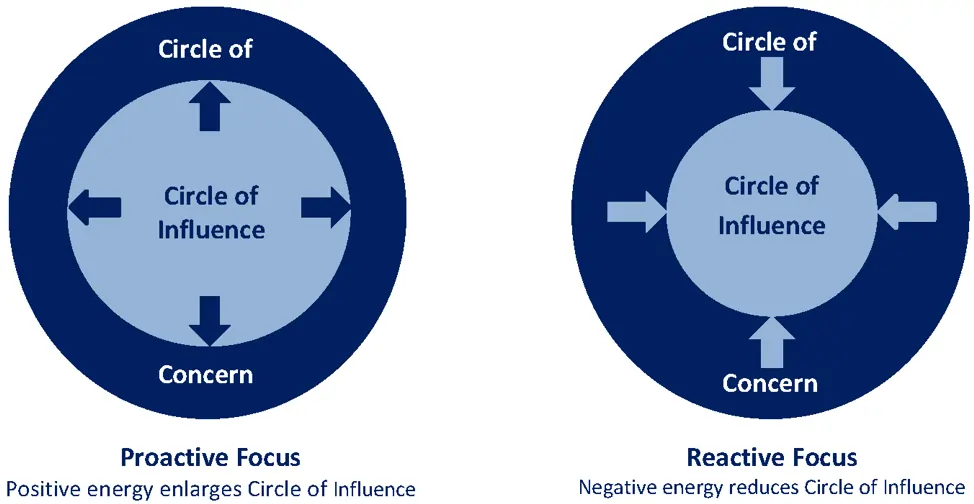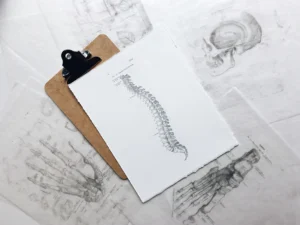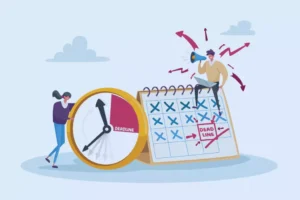
As a physician or dentist, you’ve spent years mastering your craft. But success in your career and personal life isn’t just about skill—it’s about mindset. In his book The 7 Habits of Highly Effective People, Stephen Covey explains that Habit #1: Be Proactive is the foundation of all personal and professional effectiveness.
Being proactive means taking responsibility for your choices, focusing on what you can control, and acting with intention rather than reacting to circumstances. In medicine and dentistry, this mindset can help you reduce stress, improve patient outcomes, build a thriving practice, and create a more fulfilling career.
Let’s explore what being proactive looks like in your world—and how you can apply it today.
Reactive vs. Proactive Mindset in Medicine and Dentistry
A reactive physician or dentist waits for problems to arise before addressing them. They feel overwhelmed by insurance policies, frustrated by patient non-compliance, or trapped in a work-life imbalance but do little to change it. They blame outside forces for their situation—demanding patients, high overhead, regulatory changes, or staff turnover.
A proactive physician or dentist anticipates challenges and takes steps to mitigate them before they become major problems. They focus on solutions, take ownership of their practice and career trajectory, and continuously improve their processes.
Common Situations Where Proactivity Matters
- Preventing Burnout: Instead of waiting until exhaustion forces you to take time off, you create a system that prioritizes work-life balance—setting boundaries, delegating tasks, and investing in self-care.
- Financial Planning: Rather than hoping your financial situation improves on its own, you proactively plan for the future, secure disability insurance, invest wisely, and work with an advisor.
- Patient Education & Compliance: Instead of constantly dealing with frustrated or non-compliant patients, you implement proactive education strategies to ensure they understand their treatment plans.
- Practice Growth & Career Development: Instead of being stuck in the same routine, you seek opportunities for learning, networking, and practice improvement to stay ahead in your field.
- Managing Staff & Operations: Instead of reacting to staff conflicts or inefficiencies, you proactively establish clear expectations, communication strategies, and training programs.
How to Be More Proactive in Your Career

Covey introduces the idea of the Circle of Influence vs. Circle of Concern to help professionals focus on what they can control.
- Circle of Concern (Reactive Thinking): Things you worry about but can’t control, like economic downturns, insurance reimbursements, patient behavior, or government regulations.
- Circle of Influence (Proactive Thinking): Things you can control, like your clinical skills, business operations, time management, financial planning, and leadership approach.
The key to success? Spend more time and energy in your Circle of Influence.
Actionable Steps to Become a Proactive Physician or Dentist
- Take Ownership of Your Schedule
- Set boundaries with work hours and personal time.
- Learn to say “no” to unnecessary commitments.
- Block time for strategic planning and self-improvement.
- Improve Your Patient & Staff Communication
- Anticipate patient concerns and educate them before issues arise.
- Train your staff to handle common problems efficiently.
- Lead with clear expectations rather than reacting to conflicts.
- Plan for Financial Security Early
- Get disability insurance before a health issue arises.
- Automate savings and investments for long-term wealth.
- Consider passive income strategies to diversify your financial future.
- Develop a Growth Mindset
- Stay ahead by continuing education, learning new technologies, and refining your skills.
- Seek mentorship and networking opportunities.
- Be open to feedback and improvement.
- Manage Stress Before It Manages You
- Schedule vacations and downtime in advance.
- Create routines that prioritize physical and mental health.
- Seek professional support if you’re feeling overwhelmed.
Proactivity in Action: Real-Life Examples
Dr. Smith, an Orthopedic Surgeon: He used to work 80-hour weeks and felt like he had no time for his family. Instead of accepting it as “just the way it is,” he proactively restructured his schedule, hired a PA to handle lower-risk cases, and prioritized quality time with his kids. Now, he’s more present at home while still excelling in his practice.
Dr. Patel, a Dentist: Struggled with inconsistent cash flow and high patient cancellations. Instead of blaming the economy, she implemented a pre-payment policy, improved patient education on appointment importance, and trained her front desk on proactive scheduling. Her revenue stabilized, and her stress decreased.
Dr. Garcia, a Pediatrician: Was frustrated by high rates of patient non-compliance. Instead of reacting to the issue, he started recording short educational videos for parents to watch before visits. Compliance improved significantly, leading to better patient outcomes and smoother appointments.
Final Thoughts: Take Control of Your Career
You didn’t go through years of training just to feel stuck, stressed, or powerless. Proactive physicians and dentists don’t wait for life to happen to them—they create the career, practice, and life they want by focusing on what they can control and making intentional choices.
Ask yourself today: What’s one thing I’ve been reacting to that I could instead take proactive control over? Then, take the first step toward changing it.
Your future self will thank you.
Ready to protect your future?
Get a personalized side-by-side policy comparison of the leading disability insurance companies from an independent insurance broker.




